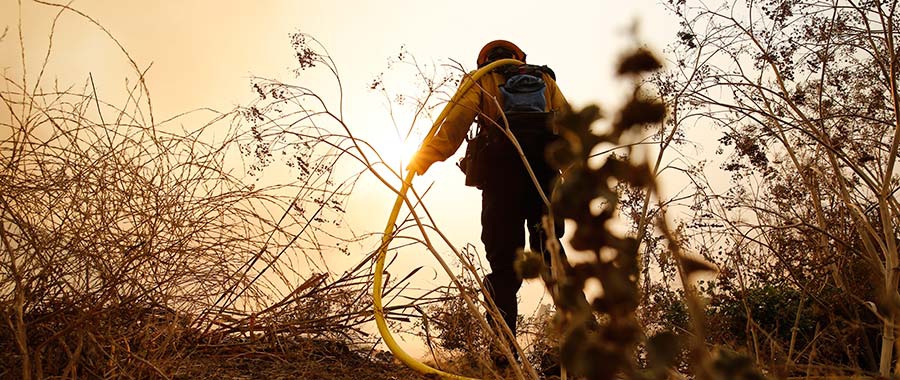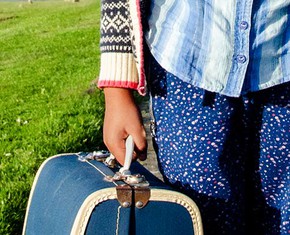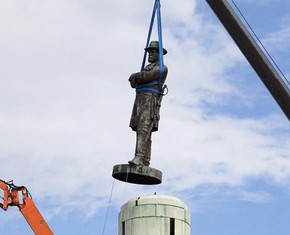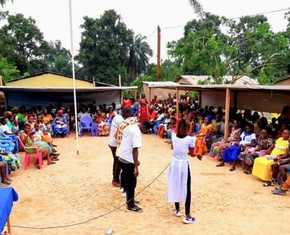The views expressed in our content reflect individual perspectives and do not represent the authoritative views of the Baha'i Faith.
On Thursday, November 8th, the deadliest and most destructive wildfire in California history ignited in a sleepy forest town known—now ironically—as Paradise.
Soon after Paradise turned hellish, a devastating inferno in Southern California began to rage. As I write this, a quarter of a million people have been evacuated from the fire-affected areas, and 48 souls have lost their lives. More than two hundred people are still missing and unaccounted for—my uncle John is one of them.
We have searched all avenues open to us, with no word. John is one of 228 missing, and the authorities estimate that the chances of finding any of these people alive is very slim. With each day that passes we realize the likelihood of him being found alive would require a miracle.
Mourning my uncle’s absence, my family and I have spent much time in prayer, trying to make sense of this heartbreaking situation. I realized that no one is impervious to Mother Nature. The well-to-do residents of glamorous Malibu on California’s coast felt the same terror and distress as the inhabitants of the modest town of Paradise. In fact, everyone in the State of California has been touched, the choking smoke gripping our breath with toxic air. As we have all been instructed by local authorities to “stay in our homes,” the vulnerable homeless people and animals struggle for their survival in a noxious environment.
Here in California with our idyllic weather, we have in the past felt somewhat removed from catastrophes like tornadoes, hurricanes, and the many natural disasters that afflict other parts of the country and the world—but the fires bring home the fact that no one is immune.
It seems that the closer one comes to disaster, the more one feels the effects. If there is a deadly flood in another country we might think, “Oh, that’s tragic!” but then in perhaps in a few weeks, we may forget about it. If our nation experiences devastation in one area, we feel bad, but we may not be intimately connected to it. As the calamity draws closer and closer to us, we really begin to feel the effects—which may lead us to an increased sense of empathy and compassion for others.
Why is that? People are the same no matter how close or far away they may reside. The loss of life is exactly the same, because as the Baha’i teachings say, we are all equal in the eyes of God:
Know ye not why We created you all from the same dust? That no one should exalt himself over the other. Ponder at all times in your hearts how ye were created. Since We have created you all from one same substance it is incumbent on you to be even as one soul, to walk with the same feet, eat with the same mouth and dwell in the same land, that from your inmost being, by your deeds and actions, the signs of oneness and the essence of detachment may be made manifest. Such is My counsel to you, O concourse of light! Heed ye this counsel that ye may obtain the fruit of holiness from the tree of wondrous glory. – Baha’u’llah, The Hidden Words, p. 20.
These calamities that appear all over the world bring us an important message: we are creations of the same God. Our culture, race, sex, or religion don’t matter—in the end we belong to God, and we must take care of each other, no matter how near or far we dwell. Though harrowing, these experiences teach us about the bigger picture, to acknowledge our essential oneness and awaken our need for unity:
God has created the world as one—the boundaries are marked out by man. God has not divided the lands, but each man has his house and meadow; horses and dogs do not divide the fields into parts. That is why Baha’u’llah says: “Let not a man glory in that he loves his country, but that he loves his kind.” All are of one family, one race; all are human beings. Differences as to the partition of lands should not be the cause of separation among the people.
The Old Testament says that God created man like unto His own image; in the Qur’an it says: “There is no difference in the Creation of God!” Think well, God has created all, cares for all, and all are under His protection. The policy of God is better than our policy. We are not as wise as God! – Abdu’l-Baha, Abdu’l-Baha in London, p. 55.
When the world is tested by disasters, great and small, if we keep the bigger picture in mind we can make better sense of them. Strange as it may seem, there can be a hidden blessing to manifest from these distressing events. They remind us to place our reliance on a loving Creator, the only One able to transmute our circumstances. They cleanse our spirits as we realize and bring our attention to and appreciate each other and what most matters in this life. They prompt us to recognize that we are literally, as Baha’u’llah said, “made of the same dust.” They remind us that this life is precious and fleeting, and to focus on bettering ourselves for the life to come. This we can do by recognizing more clearly that our life’s purpose is to grow spiritually by serving our fellow human beings:
O Son of Man! My calamity is My providence, outwardly it is fire and vengeance, but inwardly it is light and mercy. Hasten thereunto that thou mayest become an eternal light and an immortal spirit. This is My command unto thee, do thou observe it. – Baha’u’llah, The Hidden Words, p. 15.
Although outwardly cataclysms are hard to understand and to endure, yet there lies a great wisdom behind them which appears later. All the visible material events are inter-related with invisible spiritual forces. – Abdu’l-Baha, Divine Philosophy, p. 115.
As I look out my window today, the sun is a haunting shade of red and the sky is a desolate smoky grey. It is not safe to breathe the air, and I am saddened by the loss of our loved ones. But when I look at the world as a whole, I know tragedy teaches inner lessons for us all. Though we may not recognize it fully, we are all connected, and we need to unite and support each other in order to thrive on our beloved Earth. No one is immune to troubles, which means that we must love and care for each other now, so when our time of need comes we will hopefully find willing souls to care for us. Ultimately, we must put our full trust and reliance in God:
Let them cling to the hem of Almighty God, and put their faith in the Beauty of the most High; let them lean on the unfailing help that cometh from the Ancient Kingdom, and depend on the care and protection of the generous Lord. – Abdu’l-Baha, Selections from the Writings of Abdu’l-Baha, pp. 9-10.
You May Also Like
Comments

















God speed Uncle John, we love you.